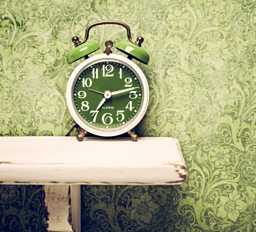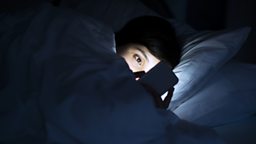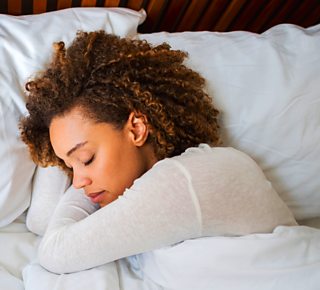10 ways to improve the quality of your sleep
A lot of us aren’t getting a good night’s sleep. Whether it’s having trouble getting to sleep in the first place, or waking up in the middle of the night, sometimes it can be hard to some shut-eye.
Neurologist Dr Guy Leschziner, who presents , has pulled together ten ways we can help improve the quality of our sleep.

1. Value sleep.
It is not a waste of time. Good quality sleep is important for almost all aspects of your life - mood, concentration, appetite, weight control, and blood pressure, among other things.
It affects many other medical issues, like diabetes, memory problems, headache, epilepsy, and heart problems.
2. There is no absolute minimum amount of sleep necessary.
People's sleep requirements vary, depending on genetics and quality of sleep.
Good quality sleep is important for almost all aspects of your life
The optimal amount of sleep is what you require to wake up feeling refreshed, alert during the day, and sleepy at bed time.
3. Avoid lie-ins.
The brain likes a sleep routine, and craves a regular bed-time and a regular waking time.
If you are lying in for more than an hour at the weekends, this probably means you are not getting enough sleep during the week.


In fact lie-ins can worsen the quality of sleep on the subsequent night.
Naps make it more likely that you are not sleepy enough when you go to bed
Catching up on sleep can be difficult, and if you are really sleep-deprived during the week, you cannot fully catch up at the weekends.
4. Avoid day-time naps.
You should avoid day-time napping for the same reason that you should avoid lie-ins.
Naps make it more likely that you are not sleepy enough when you go to bed, and will worsen your night-time sleep.
5. Don't drink caffeine after lunchtime.

For some people caffeine makes little difference to sleep, but if you are having trouble getting off to sleep, it may help to stop drinking it after lunch. Caffeine can hang around in your body much longer than you might think.

Caffeine can hang around in your body much longer than you might think
6. Reduce alcohol intake.
Alcohol is a sedative, so does sometimes help get you off to sleep.
But it worsens the quality of sleep, directly through effects on the brain, but also because it makes snoring worse, makes it more likely for you to wake with a full bladder, and can make other sleep conditions like restless legs syndrome and sleepwalking worse.
Nicotine is also a stimulant, so avoid it for the hour or so before you go to bed.
7. Don't spend more time in bed if you have poor quality sleep.
By spending more time in bed, the brain's drive to go to sleep and stay asleep is weakened.
This is likely to reduce the quality of your sleep further. Go to bed when you are really drowsy. If you are awake for prolonged periods at night, get up, go to a different room, and listen to the radio or read.
Wait until you are sleepy, then go back to bed, as otherwise you begin to associate bed with lying awake, rather than being asleep.
8. Avoid gadgets in the bedroom.

Your bed should be for sleeping in, not for surfing the Internet or watching movies.

These activities activate your mind and make it more difficult to drift off.
Furthermore, exposure to bright light, especially blue light, which flat screens are very rich in, cause changes to melatonin production, a hormone that your brain produces to promote sleep.
This makes it more difficult to get off to sleep and stay asleep.
9. Make sure your bedroom is comfortable.
Ideally your bedroom should be quiet, dark and a comfortable temperature.
If it is too cold, you will be uncomfortable, but your body needs a small drop in temperature at night to promote sleep.
10. If you are unable to stay awake during the day, go and see your GP.
There are several medical conditions that disrupt your sleep and make you very sleepy, like sleep apnoea, a condition that causes you to stop breathing at night. If these are diagnosed, treatment is usually straightforward.
More from Radio 4
-
![]()
Series in which neurologist Dr Guy Leschziner explores various sleep disorders.
-
![]()
Melvyn Bragg and his guests discuss Circadian Rhythms, the so-called body clock responsible for our sleep patterns.
-
![]()
Jake Yapp condenses the history of everything we ever thought we knew about sleep into four minutes.
-
![]()
Circadian rhythms are are found throughout the living world. How much do you know about yours?




